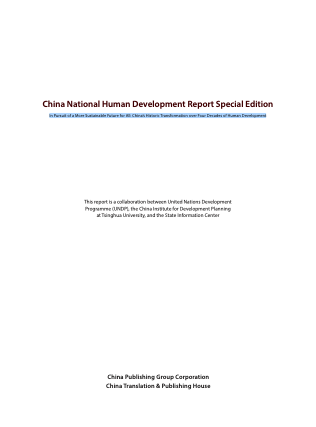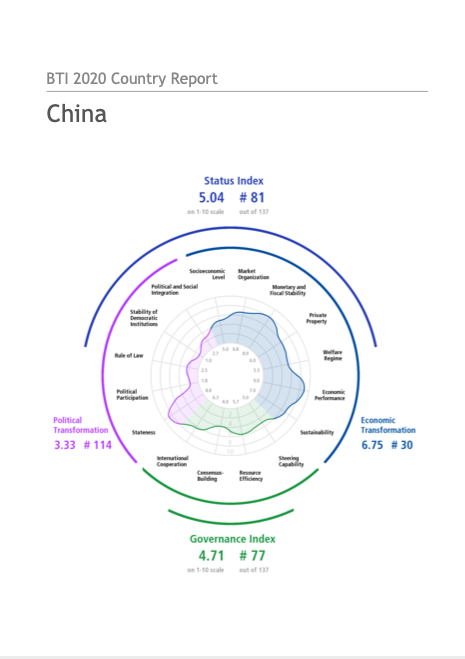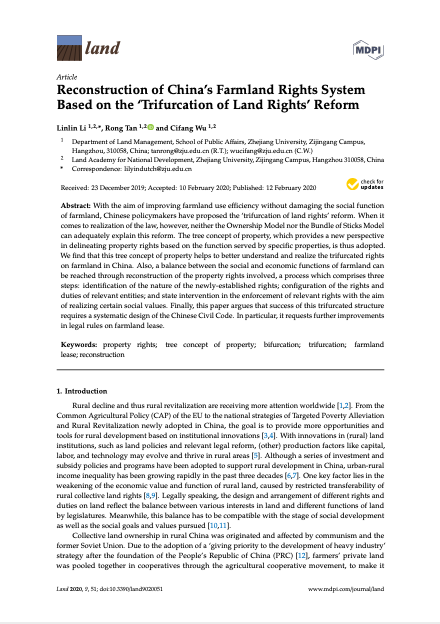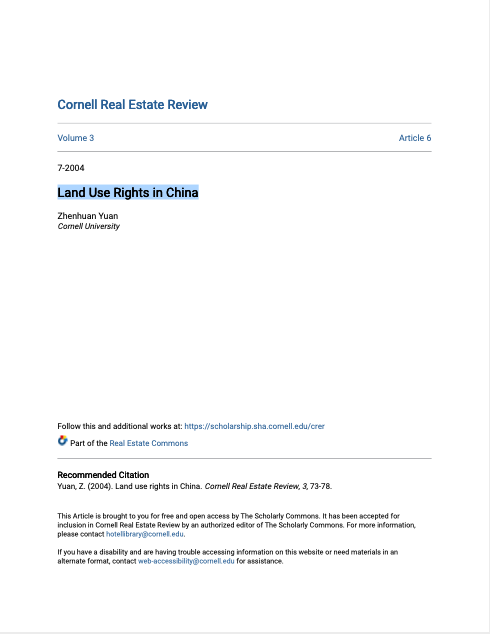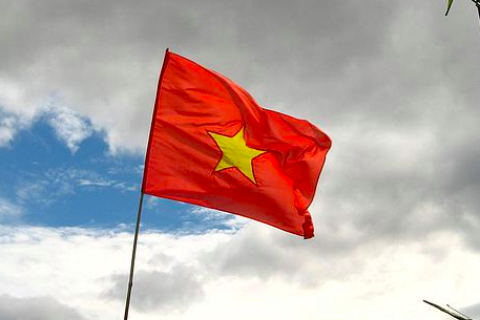
Topics and Regions
Daniel Hayward (UK) worked around Europe for 15 years as a dancer, choreographer and dance writer. Following retraining in sustainable development, he now works as an international development researcher, focused on land relations, agricultural value chains, gender, and migration. As well as working for Land Portal, Daniel is the project coordinator of the Mekong Land Research Forum at Chiang Mai University, and consultant for a variety of local and international NGOs and research institutes.
Details
Location
Contributions
Displaying 821 - 830 of 835China National Human Development Report Special Edition
2019 marks the 70th anniversary of People’s Republic of China, and 40th year anniversary of the United Nations and UNDP presence and partnership in China. The Special Edition report reflects on the remarkable changes that have taken place. It takes stock not only of the economic achievements often and widely reported, but, more importantly of the wider range of sustainable human development progress achieved by China.
BTI 2020 Country Report China
This report is part of the Bertelsmann Stiftung’s Transformation Index (BTI) 2020. It covers the period from February 1, 2017 to January 31, 2019. The BTI assesses the transformation toward democracy and a market economy as well as the quality of governance in 137 countries. More on the BTI at https://www.bti-project.org.
Bertelsmann Stiftung
The Bertelsmann Stiftung is committed to ensuring everyone can participate in society. Since the foundation was established in 1977, roughly 380 employees at our Gütersloh headquarters and other international locations have developed a wide range of projects and initiatives designed to achieve this goal.
The structure and changes of China’s land system
Purpose – The purpose of this paper is to analyze the structure and changes of China’s land system. To achieve this aim, the paper is divided into four parts.
China Agricultural Economic Review
China Agricultural Economic review publishes quality research in the economics of agriculture, rural development, natural resources and the environment, providing an in-depth analysis of Chinese agricultural reform and practice.
Reconstruction of China’s Farmland Rights System Based on the ‘Trifurcation of Land Rights’ Reform
With the aim of improving farmland use efficiency without damaging the social function of farmland, Chinese policymakers have proposed the ‘trifurcation of land rights’ reform. When it comes to realization of the law, however, neither the Ownership Model nor the Bundle of Sticks Model can adequately explain this reform. The tree concept of property, which provides a new perspective in delineating property rights based on the function served by specific properties, is thus adopted.
Land Use Rights in China
China is a socialist country and all land in China belongs to Chinese citizens as a whole. Article 10 of the 1982 Constitution upholds the Chinese land policy that reflects the traditional view of socialism - land of the country must be owned by the country (State) or its agricultural Collectives. State-owned enterprises or other organizations, which cannot own land themselves, may use land with permission from the State.
A vital mangrove forest hidden in Vietnam’s largest city could be at risk
The Can Gio Mangrove Biosphere Reserve, located in Vietnam’s Ho Chi Minh City, is one of the world’s largest areas of reforested mangroves.
BY MICHAEL TATARSKI ON 21 APRIL 2020
Mongabay Series: Global Forests
Dong Tam shows that Vietnam land laws are unjust and grassroots democracy is failing
On January 9, 2020, thousands of police entered the Dong Tam commune in Hanoi. A clash erupted, leading to the killing of three policemen and a civilian later named as Le Dinh Kinh. Once a veteran soldier and chief of police, the 84-year-old Kinh had become a leader of the Dong Tam people in a longstanding land dispute with the government.
Sanctuaries now state land
The Ministries of Environment, and Land Management, Urban Planning and Construction have listed the Peam Krasop Wildlife Sanctuary in Koh Kong province and Phnom Prich Wildlife Sanctuary in Mondulkiri province as state land to eliminate land grabbing offences.
The operations have gained support from community members who expect forest crimes to decline with the move.
A notice by the Ministry of Environment seen by The Post on Sunday said it is listing two natural protected areas – Peam Krasop Wildlife and Phnom Prich Wildlife Sanctuaries as state land.

